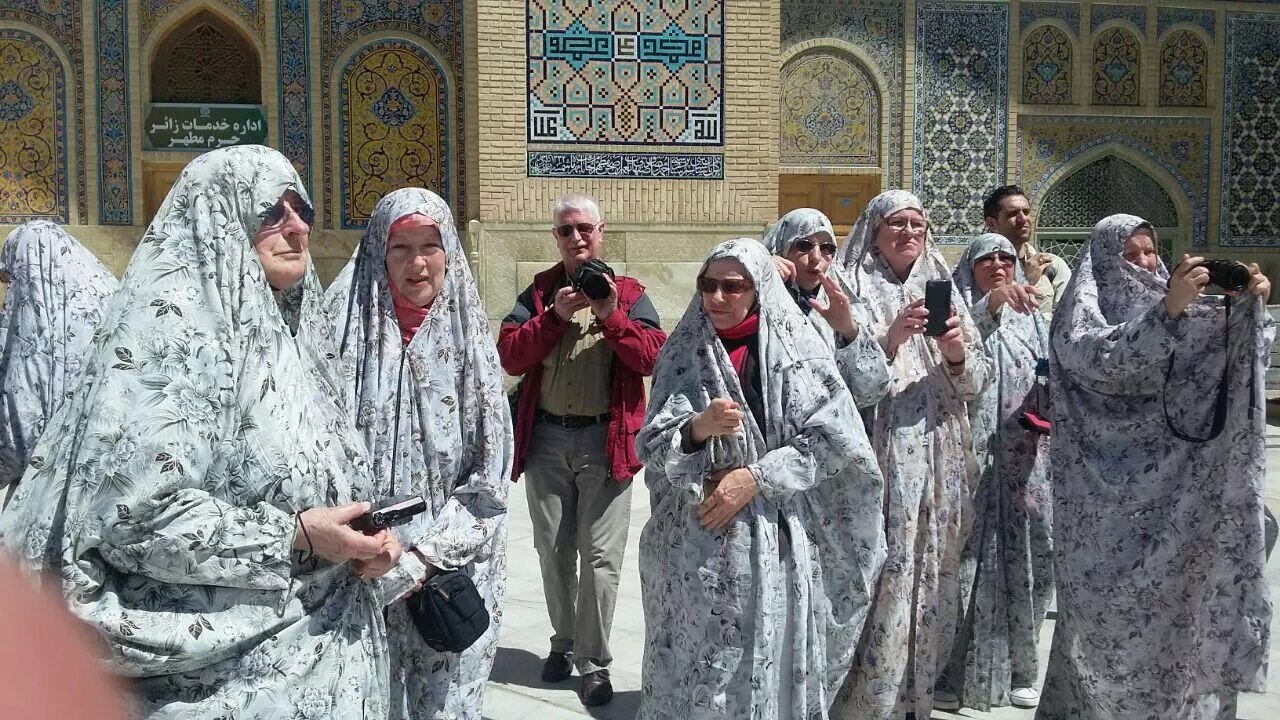TEHRAN – Travelers from 82 countries paid visits to the holy shrine of Fatima Masoumeh (SA) during the first eleven months of the current Iranian calendar year, started in March 2022. Located in Qom, the shrine is where the sister of Imam Reza (AS), the 8th Shia Imam, is laid to rest.
“6,427 international travelers from 82 countries visited the holy shrine of Hazrat Masoumeh during the first eleven months of the current year,” IRNA quoted a local official as saying on Sunday.
People from Spain, Poland, Italy, the U.S., Russia, Germany, the Netherlands, France, Czech Republic and Brazil constituted the highest number of international visitors to the shrine, Kamal Soraya-Ardakani said.
“1,265 visitors were from Spain, 719 from Poland, 664 from Italy, 457 the U.S., 453 from Russia, 367 from Germany, 204 from the Netherlands, 196 from France, 187 from Czech Republic and 147 from the Brazil.”
Thousands of domestic pilgrims from all over Iran visit the holy shrine each day.
In 815 CE, according to legends, Hazrat Masoumeh (SA) traveled to Khorasan from Medina with a large number of her relatives to visit her brother, Imam Reza (AS).
However, the Abbasid Caliph Mamun ordered his men to stop them at Saveh, a town near Qom, which is home to a large Shia population. Mamun's soldiers killed many of her companions in Saveh, where she fell ill. She therefore decided to take refuge in Qom.
The Shia Muslims of Qom extended a very warm welcome to Hazrat Masumeh (SA) and his companions upon their arrival in the city. However, she was in critical condition and eventually died in 816 AD.
Earlier, Mamun killed his brothers Hazrat Ahmad ibn Musa (AS) and Seyyed Alaeddin Hossein (AS) in the Fars region.
The second holiest city in Iran after Mashhad is Qom, which is home to many natural and cultural tourist destinations as well as important seminaries and madrasas.
Qom, whose history dates back to the Sassanid era (224 CE–651), has a wealth of historical mosques, mansions, and natural scenery spread throughout the city as well as nearby towns and villages.
Qom visitors can be classified into two groups of people; tourists and pilgrims who want to pay homage to the sacred sanctuary, and Shiite scholars and students who come from all over the world to learn Islamic studies and browse the main religious bookstores.
TAGS


No comments:
Post a Comment